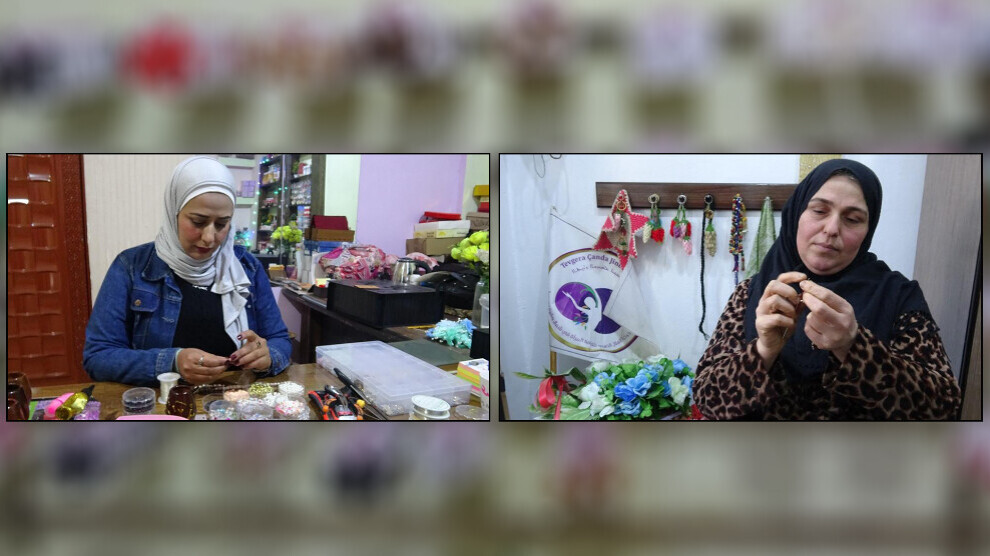Two women in Raqqa preserve traditional crafts
Julia Abu Zar and Khadija Al-Mazal are two women preserving traditional crafts in Raqqa. They believe that women’s success contributes to the development of society.

YUSRA AL-EHMED
Raqqa- Women pass down the traditional crafts that are at risk of disappearing due to technological developments from generation to generation. Julia Abu Zar and Khadija Al-Mazal preserve traditional crafts in Raqqa, a city in northeastern Syria.
‘Demand for our products increases’
Julia Abu Zer, 40, is an Armenian woman living in Raqqa. She learned how to weave a carpet from her mother and now, she teaches her daughters this art. “As women, we do our best to preserve traditional crafts that are at risk of disappearing. Demand for our products increases because our hand-knotted carpets are beautiful and good quality,” she said.
She makes beadwork
Julia Abu Zer also makes beadwork. “I make beadwork. I began to make jewelry and other products at home when my relatives, friends and neighbors asked me to make them for them. When other people asked me to make jewelry and other products for them, I decided to launch a project with the support of the Hîlala Zêrîn Cultural Movement. Until now, I have displayed my products at many exhibitions and events. I make jewelry and other things such as necklaces, bracelets and tasbih. I make efforts to design them. You need patience, creativity and focus to make beadwork.”
Deteriorating economic condition in Syria has a negative impact on prices, Julia Abu Zer said, “I use many materials such as needle, thread, beading wire, beading loom, bead board, trays and mats to make beadwork; however, they are very expensive.” Julia Abu Zer called on all women to preserve traditional crafts by passing them down from generation to generation. “Women should play a role in preserving art and culture. I am happy to preserve an art that was passed down to me from my grandmother.”
She started her own business
Khadija Al-Mazal, an accessory designer and illustrator, has been interested in traditional crafts since her childhood. She began to design accessories at home. “I sold my products to many jewelers and marketed them online for three years. When the demands for my products increased, I started my own business. Handmade accessories have higher quality; they are more beautiful, more attractive,” she told NuJINHA.
Khadija Al-Mazal makes drawings on pottery and ceramic cups. “I combine my drawing skills into crafts. Since I opened my shop, I have received more orders. I call on all women to participate in the labor force.”
Khadija Al-Mazal also teaches this art
Khadija Al-Mazal has inspired many women since she started her own business. “I decided to teach this art to other women. Now, I teach this art to many women. I believe that women’s success contributes to the development of society.”
Speaking about the challenges faced by her, she said, “One of the challenges that I face is the lack of materials and tools. I have to buy some of the materials and tools from other regions. I work long hours to design and produce the products. It is tiring but I feel happy to preserve this traditional craft.”
